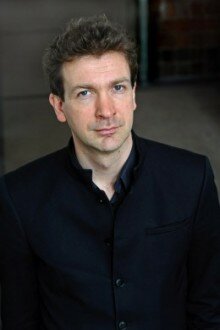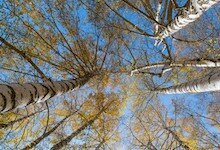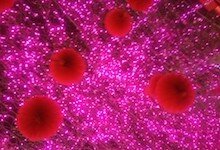
Erik Lindner made his début in 1996 with Tramontane, a collection of poems without literary predecessors: Lindner did not join any group or movement. If there would seem to be any exterior influences in his work, these could best be described as ‘accidental passers-by’ – writers and philosophers who happened to cross the poet’s path. In Tramontane one such passer-by is Walter Benjamin, whose motto “Man’s gaze is his edge” seems to offer a key to Lindner’s poetry.
In his poems, the edge of man’s gaze is the town, a room, or a landscape. Lindner tries to capture the casually perceived movements in language. His poetry is pervaded by the idea that the word creates a coherence. The idea is found again in Tong en trede (Tongue and step, 2000), a collection which, as poet Jan Baeke put it, evokes a reality “which in its seeming triviality brings to light all sorts of wonderful, intangible facets”. This seeming triviality is primarily to be found in Lindner’s images, although ‘observations’ might be a better word: he is a permanent wanderer, a passer-by, who carefully registers the tiny movements of life in a city or the apparent stillness in a room. “So a passer-by explains what passing is:/ a town you leave while you are staying there”, he writes in the opening poem of the cycle ‘Temporary stop’.
In Lindner’s poetry each sentence seems to contain a new registration, and the ‘rapid’ succession of the observations suggests something like the continuous movement in reality, the chaos, or, in other words, the simultaneity of all those movements. But Lindner’s poetry does more than record reality with almost cinematic precision. It also shows what the role of language is here: words order the incoherence of the commonplace, while simultaneously creating a ‘membrane’ between the poet and the perceived. Or, as the Belgian literary critic and scholar Yves T’Sjoen aptly puts it: “Lindner’s poetry tries to be an image of motion that cannot be captured in language.”
It altogether needn’t be a surprise that cinema and Lindner’s poetry make a good match. At the Amsterdam Filmmuseum Biënnale 2003 he recited a new poem called ‘Ostende’ and parts of ‘De sleutel’ (The key) while silent films like Images d’Ostende (1929, by Henri Storck) were being played. Both poems appear in his third collection, Tafel (Table, 2004), in which cinematic perception seems to have gained importance still. Many familiar places, figures and preoccupations from previous collections return in this new one, but Lindner very carefully avoids any repetition: his focus is on refining and subtly re-defining his registrations and definitions, thus steadily composing an expanding but impressively coherent oeuvre.
[The original version of this text was written for the Poetry International Festival Rotterdam 2002; minor changes and additional update by Thomas Möhlmann.]
“Lindner’s images can nestle in your mind like a melody. There is always a window nearby, there is always water. Cars drive past regularly. There are moments that everything around you becomes Lindner-like.”
Bas Belleman in Awater
Also on this site
As if everything has been filmed
Review of Tafel by Paul Demets
Bibliography
Poetry
Terrein. De Bezige Bij, Amsterdam 2010.
Tafel. De Bezige Bij, Amsterdam 2004.
Tong en trede. De Bezige Bij, Amsterdam 2000.
Tramontane. Perdu, Amsterdam 1996.
Anthology
Le verre est un liquide lente – 33 poètes néerlandais. Ed. Erik Lindner and Henk Pröpper. Éditions Farrago, Tours 2003.
Individual poems have been translated into Chinese, German, English, French and Macedonian. In 2007 a collection of poems in French translation, entitled Terrain, was published by CipM/Spectres Familiers.
Links
In Dutch
De Bezige Bij
Website of Lindner’s publisher, including audio and video material.
Koninklijke Bibliotheek
Lindner at the Koninklijke Bibliotheek (Royal Library, The Hague).
VPRO
Lindner on VPRO-radio.
In English
Epibreren
General information on Lindner.
Filmmuseum
Lindner at the Amsterdam Filmmuseum Biënnale in 2003.
In French
CIP Marseille
Lindner at the Centre International de Poésie Marseille.







